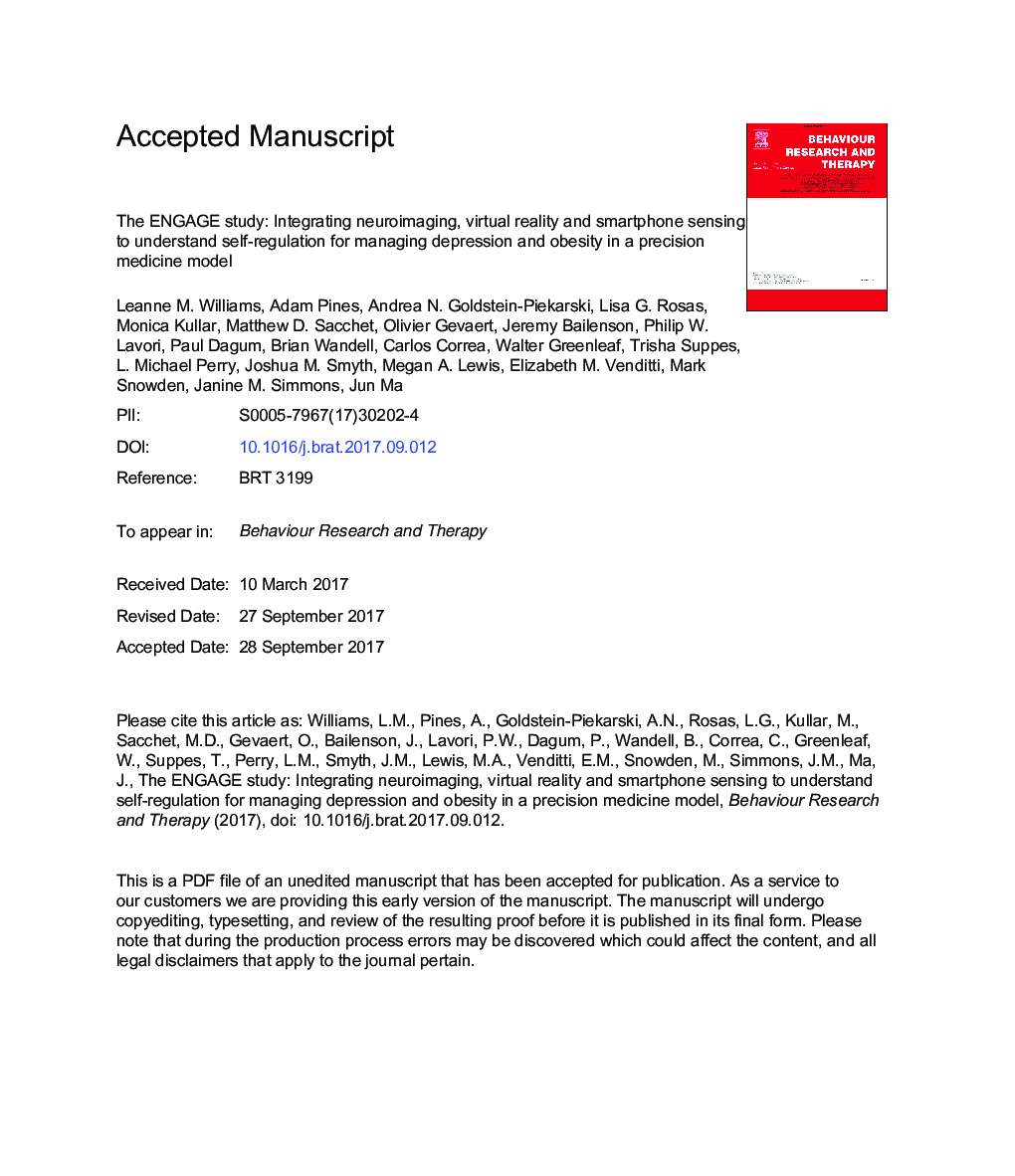| Article ID | Journal | Published Year | Pages | File Type |
|---|---|---|---|---|
| 7261906 | Behaviour Research and Therapy | 2018 | 54 Pages |
Abstract
Precision medicine models for personalizing achieving sustained behavior change are largely outside of current clinical practice. Yet, changing self-regulatory behaviors is fundamental to the self-management of complex lifestyle-related chronic conditions such as depression and obesity - two top contributors to the global burden of disease and disability. To optimize treatments and address these burdens, behavior change and self-regulation must be better understood in relation to their neurobiological underpinnings. Here, we present the conceptual framework and protocol for a novel study, “Engaging self-regulation targets to understand the mechanisms of behavior change and improve mood and weight outcomes (ENGAGE)”. The ENGAGE study integrates neuroscience with behavioral science to better understand the self-regulation related mechanisms of behavior change for improving mood and weight outcomes among adults with comorbid depression and obesity. We collect assays of three self-regulation targets (emotion, cognition, and self-reflection) in multiple settings: neuroimaging and behavioral lab-based measures, virtual reality, and passive smartphone sampling. By connecting human neuroscience and behavioral science in this manner within the ENGAGE study, we develop a prototype for elucidating the underlying self-regulation mechanisms of behavior change outcomes and their application in optimizing intervention strategies for multiple chronic diseases.
Related Topics
Health Sciences
Medicine and Dentistry
Psychiatry and Mental Health
Authors
Leanne M. Williams, Adam Pines, Andrea N. Goldstein-Piekarski, Lisa G. Rosas, Monica Kullar, Matthew D. Sacchet, Olivier Gevaert, Jeremy Bailenson, Philip W. Lavori, Paul Dagum, Brian Wandell, Carlos Correa, Walter Greenleaf, Trisha Suppes,
